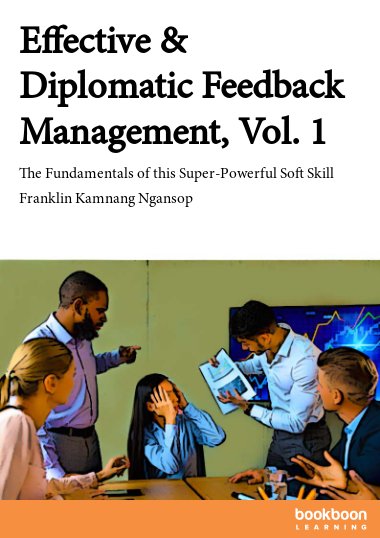Giving or receiving good feedback is a leadership essential: it is a very important professional skill, a super-powerful soft skill, which requires flexibility, tact & diplomacy. By learning and then using the proven techniques presented in this eBook, you will confidently develop and enhance your feedback skills dramatically.
About the Author
Engineer, Consultant, Entrepreneur, Coach & TrainerFranklin is an inspirational leader with a passion for excellence. As well as holding senior positions in international companies and institutions, he inspires caring organizations and professionals to find and realize their full potential effectively, through the development and implementation of bespoke, high-value-adding strategies for clients in record time.


